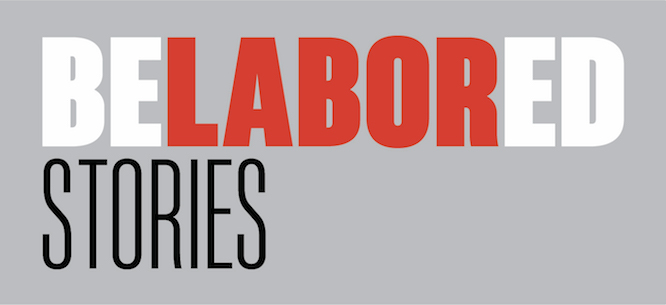Belabored Stories: Locked out of Unemployment Insurance
Belabored Stories: Locked out of Unemployment Insurance
States like California have yet to roll out a system to process gig workers’ unemployment-assistance applications. Rideshare drivers are running on fumes.

[contentblock id=coronavirus]
Belabored is a labor podcast hosted by Sarah Jaffe and Michelle Chen. Belabored Stories, a new feature, will present short accounts of what workers are facing during the coronavirus pandemic. Send us your stories at belabored@dissentmagazine.org
Al Aloudi helped make Uber the multi-billion-dollar enterprise that it is today. He has been driving since its startup days in 2013, part of the original fleet of drivers in the Bay Area. But now that the pandemic has forced San Francisco into an economic lockdown, the company that paved his career path is blocking him from seeking even the most basic relief for his family. Aloudi and other rideshare drivers across California have been trying to file unemployment claims. But after weeks of wrangling with the state’s bureaucracy, they remain empty handed.
Drivers had thought they would be able to tap a new stream of unemployment aid from the federal stimulus package that specifically targets self-employed gig workers. However, “We applied online and we got a letter that shows, ‘You have zero in your unemployment insurance,’” Aloudi said. The system apparently did not recognize any of the income they had earned from driving and, for now, deems them ineligible for assistance.
He has been told that the benefits would eventually arrive once the state retools its claims-processing system. Like many other states, California has lagged in developing a new system to process gig workers’ unemployment-assistance applications.
But Aloudi has been running on fumes since the lockdown began. Requests for Uber rides have virtually vanished, and he turned to delivering food for different outlets, including grocery shopping services and regular pizza delivery. But he stopped when he realized, “It’s not worth it. Because I’m a father of four kids. . . . And I work seven, eight hours for sixty bucks.” He is also concerned about the risk of going out to work and possibly bringing home the infection to his family, especially his elderly parents, who live with him. “So the best thing I [could do] is just to stay home and wait.”
Unfortunately, his bills won’t wait. His rent—about $2,700 a month for a rent-controlled apartment—and his car payments are coming due. He has received a stimulus check from the federal government, which should tide him over for a few weeks. But what he really wants is the unemployment insurance that he knows that he has earned from all his years of driving.
Drivers are especially frustrated because, in addition to qualifying for federal aid, they should also be covered by a new California labor law for gig workers, known as AB5, which classifies them as standard employees rather than just self-employed contractors. California Governor Gavin Newsom just signed an executive order directing the state to expedite benefits for rideshare drivers, including unemployment insurance as well as overtime and paid sick leave. Yet Uber and Lyft have resisted complying with the legislation for months, even as drivers face economic devastation amid the pandemic.
As the head Bay Area organizer for Rideshare Drivers United (RDU), a grassroots group representing Uber and Lyft drivers, Aloudi said he is constantly fielding calls from fellow drivers trying to apply for benefits. He helps them navigate the website and translates for Arabic speakers, but so far, drivers have been repeatedly rejected.
At this point, just when they need unemployment benefits the most, he said, “I’m surprised . . . [about] why we’re still misclassified, and why we have to wait. It’s all the questions nobody answers. . . . I’m a positive person and everything, but I just reach a point [when] I don’t think about myself, I just think about the kids and other people.”
Aloudi and other RDU workers took to the streets social-distancing style on Thursday, driving around in a protest caravan demanding that both the state government and the rideshare companies start paying benefits to drivers who, in effect, have been laid off due to COVID-19.
“That’s why we went outside today to do the caravan—to make people hear our voice. We are the asset for these companies. . . . [The Uber employees] in the office and the people at the head of Uber—they’re getting millions, and they are home safe, playing with their kids. And for us, we got stress. We cannot do anything.”
He hopes that the coronavirus crisis, and the collective hardship rideshare drivers have suffered, will at least force the industry to recognize the value of its workforce.
“We don’t need anyone to give us anything we don’t deserve,” Aloudi said. “We just need what we deserve. We need to enforce AB5. . . . [W]e are the asset for these companies.” If there is an upshot to the current crisis, he added, “This is like a slap in the face to make you wake up: Yes, we have a problem, and we have to not go around it anymore. We have to face it. And we are the ones who give you guys the money.”
Michelle Chen is a member of Dissent‘s editorial board and co-host of its Belabored podcast.




